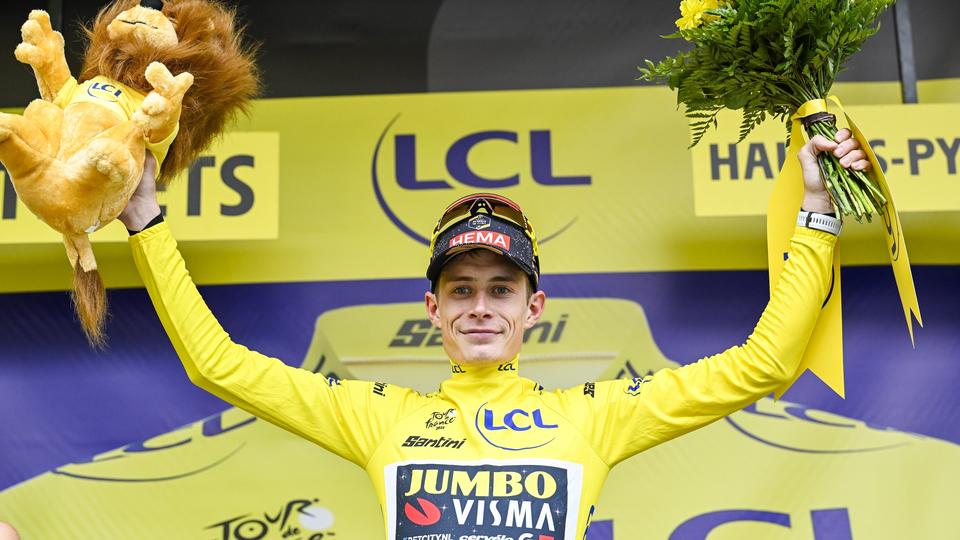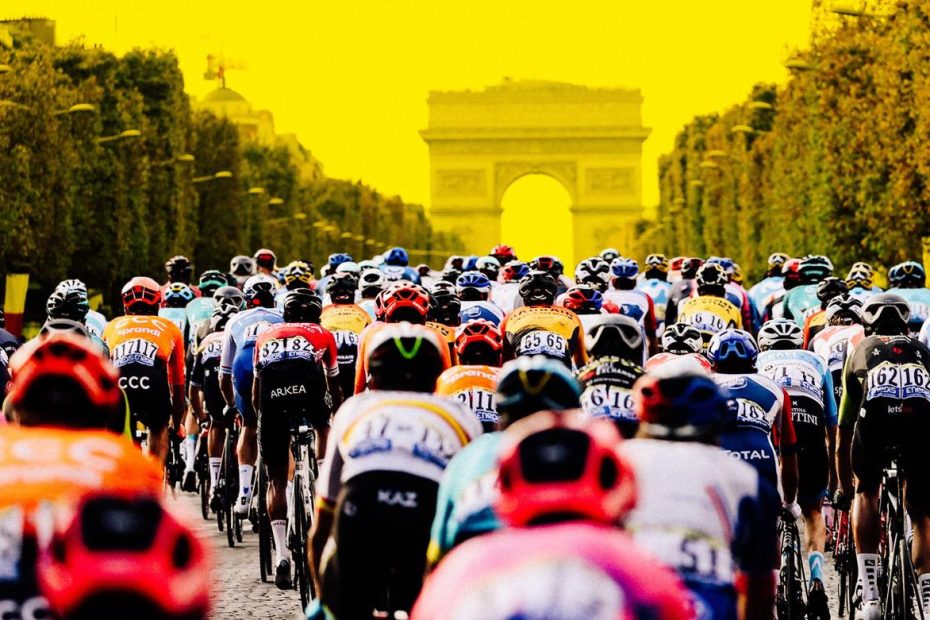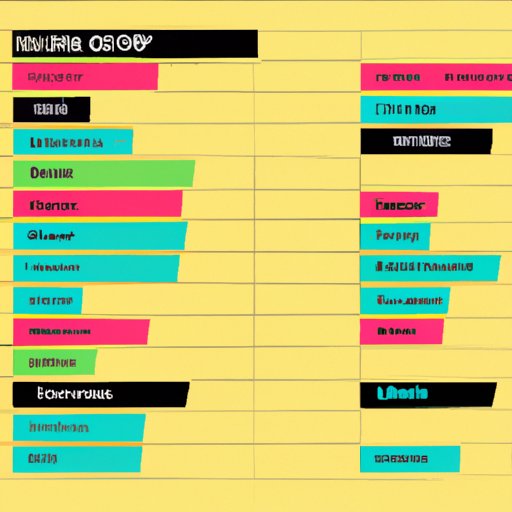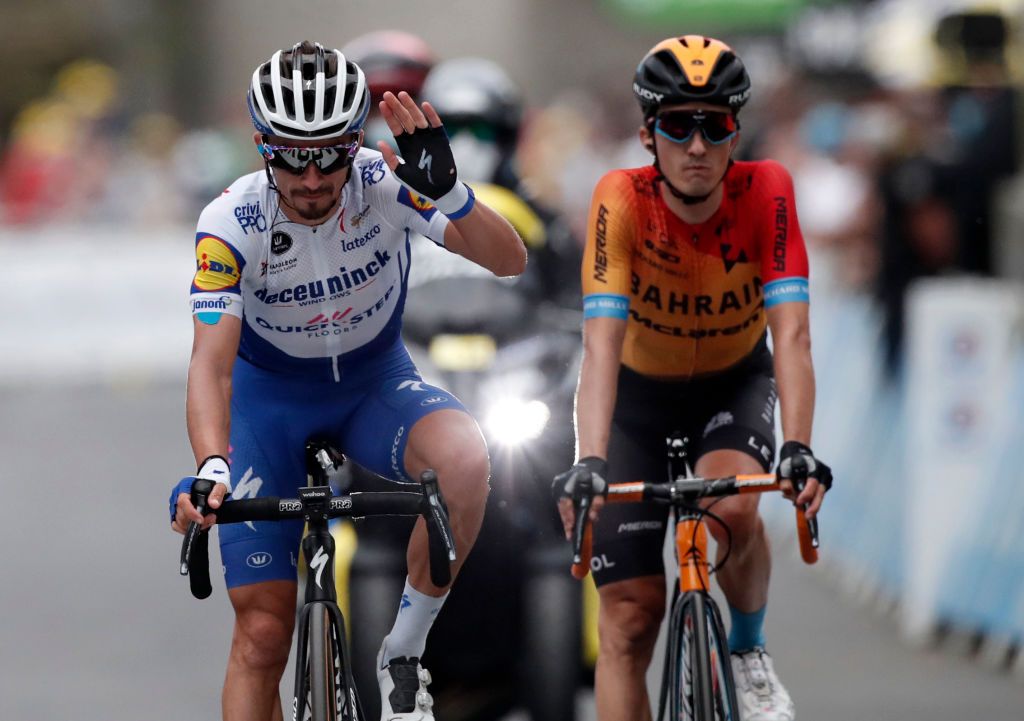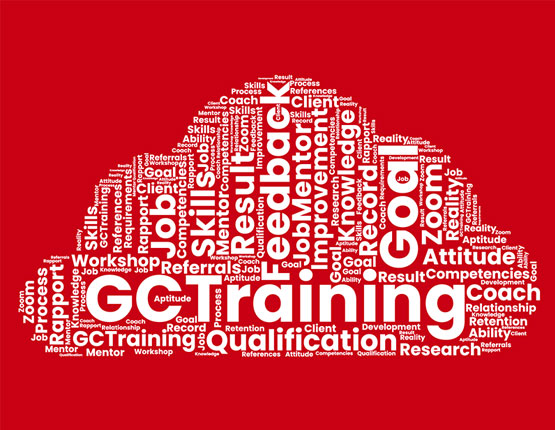What is General Classification and Why Does it Matter?
The General Classification (GC) is the most prestigious title in the Tour de France, awarded to the rider who completes the entire course in the shortest time. The GC is calculated by adding up the time taken by each rider to complete each stage, with the rider having the lowest cumulative time declared the winner. The GC is often referred to as the “overall” or “general” classification, and it is considered the ultimate goal for professional cyclists competing in the Tour de France.
The GC has a rich history, dating back to the early days of the Tour de France. The first GC was awarded in 1903, and since then, it has been the most coveted title in professional cycling. The GC is not just a measure of a rider’s speed and endurance; it also requires strategic thinking, teamwork, and mental toughness. Riders must balance their efforts over the course of the three-week tour, conserving energy for the critical mountain stages while also trying to gain time on their rivals.
The GC is often decided by mere seconds, making it one of the most thrilling and unpredictable aspects of the Tour de France. The yellow jersey, worn by the GC leader, is an iconic symbol of excellence in professional cycling. Winning the GC is a career-defining achievement, and it is considered the pinnacle of success for professional cyclists.
In the context of the Tour de France, the GC is what matters most. It is the ultimate measure of a rider’s ability to perform over the course of three weeks, and it is the title that every rider dreams of winning. The GC is not just a title; it is a badge of honor, a symbol of excellence, and a testament to a rider’s dedication, hard work, and perseverance.
For fans of the Tour de France, the GC is what makes the race so compelling. The battle for the GC is a thrilling spectacle, with riders pushing themselves to the limit, sacrificing everything for the chance to wear the yellow jersey. The GC is what makes the Tour de France the greatest sporting event in the world, and it is what continues to inspire and captivate audiences around the globe.
How to Win the Tour de France: A GC Contender’s Strategy
Winning the General Classification (GC) in the Tour de France requires a combination of individual talent, team support, and strategic planning. GC contenders must possess a unique blend of physical and mental abilities, including endurance, climbing prowess, time-trialing skills, and tactical acumen.
Team dynamics play a crucial role in a successful GC campaign. A strong team provides a platform for the GC contender to focus on their own performance, while also offering support and protection during critical stages. Domestiques, or support riders, are essential in helping the GC contender conserve energy, navigate the peloton, and position themselves for key stages.
Stage racing tactics are also vital in the pursuit of GC success. GC contenders must be able to read the race, anticipating and responding to the moves of their rivals. This requires a deep understanding of the course, the strengths and weaknesses of their opponents, and the ability to make split-second decisions under pressure.
Individual rider strengths are also critical in determining GC success. GC contenders must possess a well-rounded skillset, including the ability to climb, time-trial, and sprint. They must also be able to recover quickly from the physical demands of each stage, and maintain a high level of performance over the course of the three-week tour.
Consistency is key in the GC competition. GC contenders must be able to perform at a high level every day, without suffering a catastrophic loss of time or a debilitating injury. This requires a combination of physical and mental toughness, as well as a deep understanding of their own strengths and weaknesses.
Adaptability is also essential in the GC competition. GC contenders must be able to adjust their strategy in response to changing circumstances, such as weather conditions, road closures, or the tactics of their rivals. This requires a high degree of flexibility and a willingness to take calculated risks.
Mental toughness is also critical in the GC competition. GC contenders must be able to manage their nerves, maintain their focus, and push themselves to the limit, even in the face of adversity. This requires a deep understanding of their own mental and emotional strengths, as well as the ability to draw on their experiences and learn from their mistakes.
In the context of the Tour de France, a well-rounded approach to GC success is essential. GC contenders must be able to balance their individual strengths and weaknesses, while also working effectively with their team and adapting to the demands of the course. By combining these elements, GC contenders can maximize their chances of winning the coveted yellow jersey and achieving success in the GC competition.
Understanding the Role of Teamwork in GC Success
Teamwork is a crucial component of success in the General Classification (GC) competition in the Tour de France. A strong team provides a platform for the GC contender to focus on their own performance, while also offering support and protection during critical stages. In this article, we will delve into the importance of teamwork in achieving GC success, highlighting the key roles of domestiques, lead-out trains, and strategic alliances.
Domestiques are the unsung heroes of the Tour de France. These support riders play a vital role in helping the GC contender conserve energy, navigate the peloton, and position themselves for key stages. Domestiques are responsible for fetching water and food, providing shelter from the wind, and offering moral support during difficult moments. They are also expected to sacrifice their own interests for the benefit of the team, often riding at the front of the peloton to set a high pace and wear down the opposition.
Lead-out trains are another key component of a successful GC team. These trains are formed by a group of riders who work together to deliver the GC contender to the front of the peloton at the critical moment. Lead-out trains are typically composed of experienced riders who are skilled at navigating the chaos of the peloton and positioning themselves for the final sprint. By working together, the lead-out train can provide a significant advantage to the GC contender, allowing them to conserve energy and focus on the final push for the line.
Strategic alliances are also an important aspect of teamwork in the GC competition. These alliances involve the GC contender forming partnerships with other riders or teams to achieve a common goal. For example, a GC contender may form an alliance with a rival team to share the workload and conserve energy during a difficult stage. Alternatively, they may form an alliance with a specialist rider, such as a sprinter or a climber, to gain an advantage in a specific discipline.
Examples of successful teamwork in the GC competition can be seen in the victories of past Tour de France winners. For example, the 2019 winner, Egan Bernal, was supported by a strong team that included experienced riders such as Geraint Thomas and Gianni Moscon. This team worked together to deliver Bernal to the front of the peloton at the critical moment, allowing him to take advantage of his climbing skills and secure the yellow jersey.
In conclusion, teamwork is a vital component of success in the GC competition in the Tour de France. By working together, riders can achieve a common goal and gain a significant advantage over their rivals. Whether it is through the support of domestiques, the power of lead-out trains, or the formation of strategic alliances, teamwork is essential for any rider hoping to win the coveted yellow jersey.
GC Favorites: Analyzing the Strengths and Weaknesses of Top Contenders
As the Tour de France approaches, fans and pundits alike begin to speculate about the top contenders for the General Classification (GC) title. In this article, we will profile several top GC contenders, examining their strengths, weaknesses, and past performances in the Tour de France. We will also discuss how their riding styles, team support, and strategic decisions might influence their chances of winning.
One of the top contenders for the GC title is the reigning champion, Egan Bernal. Bernal has proven himself to be a formidable rider, with a strong all-around skillset that includes excellent climbing and time-trialing abilities. However, he has also shown vulnerability in the past, particularly in the mountains, where he has struggled to keep pace with his rivals.
Another top contender is the French rider, Thibaut Pinot. Pinot has a strong track record in the Tour de France, with several top-10 finishes in recent years. He is known for his aggressive riding style, which has earned him the nickname “the French bulldog.” However, Pinot has also struggled with injuries in the past, which could impact his chances of winning the GC title.
The Australian rider, Richie Porte, is also a strong contender for the GC title. Porte has a wealth of experience in the Tour de France, with several top-10 finishes in recent years. He is known for his strong time-trialing abilities, which could give him an edge in the GC competition. However, Porte has also struggled with consistency in the past, which could impact his chances of winning.
The Colombian rider, Nairo Quintana, is another top contender for the GC title. Quintana has a strong track record in the Tour de France, with several top-10 finishes in recent years. He is known for his excellent climbing abilities, which could give him an edge in the mountains. However, Quintana has also struggled with time-trialing in the past, which could impact his chances of winning.
In conclusion, the GC competition in the Tour de France is always highly competitive, with several top contenders vying for the title. Each of the riders profiled in this article has their strengths and weaknesses, which could impact their chances of winning. However, with the right combination of skill, strategy, and luck, any of these riders could emerge victorious and claim the coveted yellow jersey.
Navigating the Challenges of the Tour de France: Mountains, Time Trials, and More
The Tour de France is one of the most demanding sporting events in the world, with riders facing a variety of challenges over the course of three weeks. From the grueling mountain stages to the high-speed time trials, the Tour de France is a true test of endurance, skill, and strategy. In this article, we will break down the various challenges that GC contenders face during the Tour de France, and offer insights into how riders can prepare for and overcome these obstacles.
Mountain stages are one of the most iconic and challenging aspects of the Tour de France. These stages feature steep climbs, treacherous descents, and unpredictable weather conditions, making them a true test of a rider’s physical and mental toughness. To succeed in the mountains, riders must have a strong aerobic base, as well as the ability to recover quickly from the physical demands of each stage.
Individual time trials are another key challenge that GC contenders face during the Tour de France. These stages require riders to complete a set course against the clock, with the fastest time winning. Time trials are a true test of a rider’s speed, endurance, and aerodynamics, and require a high level of physical fitness and technical skill.
Unpredictable weather conditions are another challenge that GC contenders face during the Tour de France. From the scorching heat of the French summer to the torrential rain of the Pyrenees, the weather can have a significant impact on the outcome of each stage. To succeed in the Tour de France, riders must be able to adapt quickly to changing weather conditions, and have the skills and experience to navigate the challenges of each stage.
In addition to the physical challenges of the Tour de France, GC contenders must also navigate the mental and emotional demands of the competition. The pressure to perform, the stress of racing, and the constant scrutiny of the media and the public can take a significant toll on a rider’s mental health and well-being. To succeed in the Tour de France, riders must have a strong mental game, as well as the ability to manage their emotions and stay focused under pressure.
So how can riders prepare for and overcome the challenges of the Tour de France? One key strategy is to focus on building a strong aerobic base, through a combination of endurance training and high-intensity interval work. Riders should also work on developing their technical skills, such as cornering, braking, and bike handling, to improve their speed and efficiency on the bike.
In addition to physical training, riders should also focus on developing their mental toughness and resilience. This can involve working with a sports psychologist, practicing mindfulness and meditation, and developing a strong support network of family, friends, and teammates.
By combining physical training, technical skill, and mental toughness, riders can develop the skills and experience needed to succeed in the Tour de France. Whether you are a professional rider or an amateur enthusiast, the Tour de France is a true test of endurance, skill, and strategy, and offers a unique and exciting challenge for riders of all levels.
The Mental Game: How GC Contenders Prepare for the Pressure and Stress of the Tour
Competing for the General Classification (GC) in the Tour de France is a mentally and emotionally demanding experience. The pressure to perform, the stress of racing, and the constant scrutiny of the media and the public can take a significant toll on a rider’s mental health and well-being. In this article, we will explore the mental and emotional demands of competing for the GC in the Tour de France, and discuss how riders can prepare for and manage these challenges.
One of the key mental challenges that GC contenders face is the pressure to perform. The Tour de France is one of the most prestigious sporting events in the world, and the pressure to win is intense. Riders must be able to manage their nerves and stay focused under pressure, while also dealing with the physical demands of the competition.
Another key mental challenge that GC contenders face is the stress of racing. The Tour de France is a high-speed, high-stakes competition, and riders must be able to manage their stress levels and stay calm under pressure. This can be particularly challenging in the mountains, where the roads are narrow and the descents are treacherous.
In addition to the pressure and stress of racing, GC contenders must also deal with the constant scrutiny of the media and the public. The Tour de France is a highly publicized event, and riders are under constant pressure to perform and deliver results. This can be mentally and emotionally draining, and riders must be able to manage their expectations and stay focused on their goals.
So how can riders prepare for and manage the mental and emotional demands of competing for the GC in the Tour de France? One key strategy is to focus on building mental toughness and resilience. This can involve working with a sports psychologist, practicing mindfulness and meditation, and developing a strong support network of family, friends, and teammates.
Riders can also prepare for the mental and emotional demands of the Tour de France by developing a strong pre-race routine. This can include activities such as visualization, positive self-talk, and breathing exercises, which can help to calm the nerves and focus the mind.
In addition to pre-race preparation, riders can also manage the mental and emotional demands of the Tour de France by staying focused on their goals and expectations. This can involve setting realistic goals and expectations, and staying focused on the process of racing rather than the outcome.
By combining mental toughness, pre-race preparation, and a focus on the process of racing, riders can develop the mental and emotional skills needed to succeed in the Tour de France. Whether you are a professional rider or an amateur enthusiast, the Tour de France is a true test of endurance, skill, and strategy, and offers a unique and exciting challenge for riders of all levels.
GC in the Modern Era: How Advances in Technology and Training Impact the Competition
The General Classification (GC) competition in the Tour de France has undergone significant changes in recent years, driven by advances in technology, training methods, and sports science. In this article, we will explore how these innovations have impacted the GC competition, and examine the impact of aerodynamic bikes, personalized nutrition, and data-driven training on rider performance.
One of the most significant advances in technology has been the development of aerodynamic bikes. These bikes are designed to reduce air resistance, allowing riders to maintain high speeds with less effort. This has had a significant impact on the GC competition, as riders who have access to these bikes have a distinct advantage over their competitors.
Another key innovation has been the development of personalized nutrition. This involves tailoring a rider’s diet to their specific needs, taking into account factors such as their body composition, training load, and nutritional requirements. By optimizing their nutrition, riders can improve their performance and gain a competitive edge.
Data-driven training is another area where technology has had a significant impact on the GC competition. This involves using data and analytics to optimize a rider’s training program, taking into account factors such as their power output, heart rate, and cadence. By using data to inform their training, riders can make more informed decisions and gain a competitive edge.
The impact of these innovations can be seen in the performances of top GC contenders. For example, riders such as Chris Froome and Geraint Thomas have used aerodynamic bikes, personalized nutrition, and data-driven training to gain a competitive edge and win the Tour de France.
In addition to these innovations, advances in sports science have also had a significant impact on the GC competition. For example, the use of altitude training and heat acclimatization has become more widespread, allowing riders to adapt to different environments and gain a competitive edge.
Overall, the GC competition in the Tour de France has become increasingly sophisticated, with riders using a range of technologies and training methods to gain a competitive edge. By understanding the impact of these innovations, riders can make more informed decisions and improve their performance.
In conclusion, the GC competition in the Tour de France is a complex and multifaceted event, influenced by a range of factors including technology, training methods, and sports science. By understanding the impact of these innovations, riders can gain a competitive edge and improve their performance.
Conclusion: What it Takes to Win the Tour de France GC
Winning the General Classification (GC) in the Tour de France is a monumental achievement that requires a combination of physical and mental toughness, strategic planning, and a well-rounded approach to racing. Throughout this article, we have explored the various factors that contribute to a successful GC campaign, including team dynamics, stage racing tactics, individual rider strengths, and the importance of consistency, adaptability, and mental toughness.
We have also examined the crucial role of teamwork in achieving GC success, highlighting the importance of domestiques, lead-out trains, and strategic alliances. Additionally, we have profiled several top GC contenders, analyzing their strengths, weaknesses, and past performances in the Tour de France.
Furthermore, we have broken down the various challenges that GC contenders face during the Tour de France, including mountain stages, individual time trials, and unpredictable weather conditions. We have also explored the mental and emotional demands of competing for the GC in the Tour de France, including the pressure to perform, the stress of racing, and the importance of mental preparation and resilience.
Finally, we have discussed how advances in technology, training methods, and sports science have influenced the GC competition in the Tour de France, examining the impact of innovations such as aerodynamic bikes, personalized nutrition, and data-driven training on rider performance.
In conclusion, winning the GC in the Tour de France requires a deep understanding of the complexities of the competition, as well as a well-rounded approach to racing that incorporates physical and mental toughness, strategic planning, and a strong support team. By appreciating the complexity and nuance of this prestigious title, readers can gain a deeper understanding of what it takes to succeed at the highest level of professional cycling.
Whether you are a professional rider or an amateur enthusiast, the Tour de France GC is a title that commands respect and admiration. By understanding the factors that contribute to a successful GC campaign, readers can appreciate the achievements of the riders who compete for this prestigious title, and gain a deeper understanding of the sport of professional cycling.


